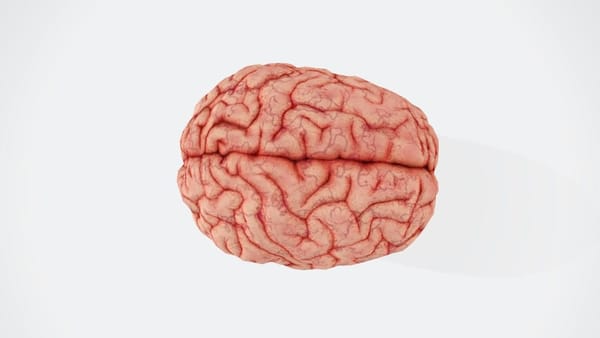In recent years, researchers have uncovered a surprising link between our diet and mental health. A growing body of evidence suggests that consuming a high-fat diet, particularly one rich in saturated fats, may contribute to increased anxiety levels. This discovery has important implications for the millions of people who struggle with anxiety disorders and those looking to improve their overall mental well-being.
Key Takeaways:
- High-fat diets, especially those high in saturated fats, may increase anxiety levels.
- The gut-brain connection plays a crucial role in how diet affects mental health.
- Consuming a balanced diet rich in fruits, vegetables, lean proteins, and healthy fats can help reduce anxiety.
- Specific foods like fatty fish, nuts, seeds, and leafy greens may have anxiety-reducing properties.
- Lifestyle factors such as regular exercise and stress management techniques are also important in managing anxiety.
The Link Between High-Fat Diets and Anxiety
Recent studies have shed light on the complex relationship between our diet and mental health. Researchers have found that consuming a diet high in fat, particularly saturated fats, may lead to increased anxiety levels[1][2]. This connection is thought to be mediated through the gut-brain axis, a bidirectional communication system between our digestive system and our brain.
A high-fat diet can disrupt the delicate balance of bacteria in our gut, known as the gut microbiome. This disruption can lead to inflammation and alterations in brain chemistry, potentially contributing to anxiety and other mood disorders[4]. The impact of diet on mental health appears to be particularly pronounced in Western countries, where high-fat diets are more common.
How High-Fat Diets Affect the Brain
The consumption of fatty foods can have far-reaching effects on our brain and behavior. Studies have shown that a high-fat diet can:
- Alter brain chemistry: High-fat diets can affect the production and regulation of neurotransmitters, including serotonin and dopamine, which play crucial roles in mood regulation.
- Increase inflammation: Excessive fat intake can lead to chronic low-grade inflammation throughout the body, including the brain, which has been linked to various mental health issues.
- Disrupt the gut microbiome: A healthy gut microbiome is essential for proper brain function. High-fat diets can alter the composition of gut bacteria, potentially leading to negative effects on mental health[5].
- Impair cognitive function: Some studies suggest that high-fat diets may negatively impact memory and other cognitive functions, which can contribute to feelings of anxiety and stress.
Anxiety-Reducing Foods to Include in Your Diet
While a high-fat diet may contribute to anxiety, certain foods have been shown to have anxiety-reducing properties. Incorporating these foods into your diet may help manage anxiety symptoms:
- Fatty fish: Rich in omega-3 fatty acids, fish like salmon, mackerel, and sardines can help reduce inflammation and support brain health[3].
- Nuts and seeds: Almonds, walnuts, pumpkin seeds, and chia seeds are excellent sources of magnesium, which has been linked to reduced anxiety[6].
- Leafy greens: Spinach, kale, and Swiss chard are rich in folate and other nutrients that support mental health[6].
- Fermented foods: Yogurt, kefir, and sauerkraut contain probiotics that can help maintain a healthy gut microbiome.
- Berries: Blueberries, strawberries, and other berries are high in antioxidants, which may help reduce inflammation and oxidative stress.
- Whole grains: Complex carbohydrates found in whole grains can help stabilize blood sugar levels and promote the production of serotonin.
- Lean proteins: Turkey, chicken, and eggs contain tryptophan, an amino acid that helps produce serotonin.
- Turmeric: This spice contains curcumin, which has been shown to have anti-inflammatory and antioxidant properties[3].
Developing an Anxiety-Reducing Diet Plan
To create a diet that supports mental health and potentially reduces anxiety, consider the following tips:
- Focus on whole foods: Prioritize fresh fruits, vegetables, whole grains, and lean proteins.
- Limit processed foods: Reduce your intake of packaged snacks, fast food, and other highly processed items that are often high in unhealthy fats.
- Choose healthy fats: Opt for sources of healthy fats like avocados, olive oil, and nuts instead of saturated and trans fats.
- Stay hydrated: Proper hydration is essential for overall health and can help reduce stress and anxiety.
- Consider portion sizes: Overeating, even of healthy foods, can lead to discomfort and potentially exacerbate anxiety symptoms.
- Eat regularly: Skipping meals can lead to blood sugar fluctuations, which may worsen anxiety symptoms.
Lifestyle Factors to Consider
While diet plays a crucial role in managing anxiety, it's important to remember that other lifestyle factors also contribute to mental health. Consider incorporating the following practices:
- Regular exercise: Physical activity has been shown to reduce anxiety and improve overall mood.
- Stress management techniques: Practices like meditation, deep breathing, and yoga can help reduce stress and anxiety.
- Adequate sleep: Aim for 7-9 hours of quality sleep each night to support mental health.
- Limit caffeine and alcohol: Both substances can exacerbate anxiety symptoms in some individuals.
- Seek professional help: If anxiety persists or becomes overwhelming, consider consulting a mental health professional.
Conclusion
The connection between diet and mental health is complex and multifaceted. While a high-fat diet may contribute to increased anxiety levels, adopting a balanced, nutrient-rich diet can potentially help manage anxiety symptoms. By focusing on whole foods, incorporating anxiety-reducing ingredients, and maintaining a healthy lifestyle, you can take proactive steps towards improving your mental well-being.
Remember that everyone's nutritional needs and responses to dietary changes are unique. If you're considering making significant changes to your diet, especially if you have pre-existing health conditions or are taking medications, it's always best to consult with a healthcare professional or registered dietitian.
By making informed choices about what we eat and how we live, we can work towards better mental health and overall well-being. The journey to managing anxiety through diet may take time and patience, but the potential benefits for your mental and physical health make it a worthwhile endeavor.
Citations:
[1] https://www.medicalnewstoday.com/articles/high-fat-diet-may-disrupt-gut-bacteria-fuel-anxiety
[3] https://www.medicalnewstoday.com/articles/322652
[4] https://www.sciencedaily.com/releases/2024/06/240617173547.htm
[5] https://www.ncbi.nlm.nih.gov/pmc/articles/PMC4869056/
[6] https://www.health.harvard.edu/blog/nutritional-strategies-to-ease-anxiety-201604139441
[7] https://metro.co.uk/2024/08/17/experts-reveal-high-fat-diets-extraordinary-effect-anxiety-21426220/












Member discussion